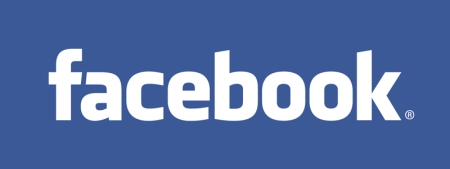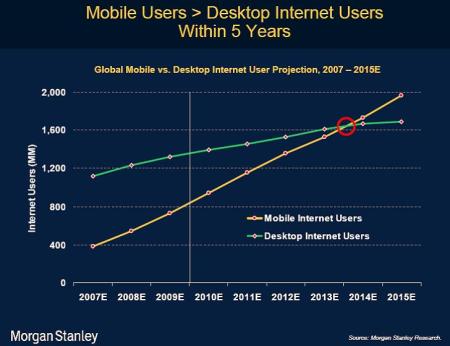By Brian Rich
As you well know, the last six years of the Internet could well be defined by one word: Facebook.
Founded in early 2004, the site saw strong, steady growth for years, first spreading with virality through university towns across America, followed by a pandemic-like explosion amongst the general populace only a few years later. Facebook now boasts more than 800 million active users and even logged more than 500 million individual logins in a single day within the past few months.
But we all know the story of Facebook and don’t need to beat that into the ground any further.
What you might not know, though, is how feature creep – a known, loathed and somehow irresistible force in the tech world – could be poised to strike the Achilles heel of Facebook and bring the social media titan to a collapse that would certainly be of epic proportions.
As any entrepreneur/inventor/CEO knows, scaling a business is a very difficult and critical process; a road full of potholes and landmines (Netflix, anyone?). In fact, one might say the worst thing about growing a business is … growing a business. Nonetheless, Facebook has done a fabulous job in maintaining their relatively minimalist approach, while others have gone horribly astray (see: Myspace). But now Facebook is approaching (or has recently passed) another hurdle that is difficult to deal with because no company in the history of the Internet has ever gotten big enough to have to deal with it.
The $10 billion question: How do you keep 50 million super users (the early adopters from 2004-05), 300 million dedicated veteran users, 300 million casual users and 150 million new users happy and content with just one website?
Allow the scope of this task to stew in your brain for a minute. Most people find it difficult to order pizza for a group of five kids and keep everyone happy, and that’s with the knowledge that most kids aren’t going to abandon their parents and move into the neighbor’s house if the wrong pizza is ordered for dinner. Now scale that up to 800 million users and consider that if even 100 million of those users become furious for (x) reason and leave – or worse, they become bored and just stop coming to Facebook every day – it would be painted by major news outlets as the beginning of the fall of the digital Roman Empire. Then you get other social forces like the bandwagon and dogpile effects and in a matter of six months Facebook could be in a world of pain and on the brink of ruin financially.
Now, forget all that. Because it’s not going to happen, and it’s not because of anything cooked up inside the genius brains in Facebook’s marketing or development departments. No, Facebook is going to be saved by a phenomenon that is going to permanently alter the digital landscape within only the next few years. Call it the tipping point phenomenon. Or, call it the 50+1 phenomenon. Or, just call it mobile.
While at a social media and technology conference a few weeks ago, Chris Smith (of Inman News/Inman Next fame) gave a convincing presentation on the trend toward mobile and what the world could look like if the majority of Internet users used a mobile device (smartphone or tablet device) for their Internet needs more often than they used any other type of device. Without dipping into the perennial joke that is to say (x) year is the “year of mobile,” most projections safely predict mobile Internet usage overtaking desktop usage at some point in 2014. Of course, the adoption of the best technologies tends to follow an exponential growth curve (see: Facebook), so that date might wind up being sometime in 2012-13, meaning the digital world as we know it could be about to change in monstrous ways and most tech-oblivious companies could be caught with their virtual pants down.
All it takes is for that scale to tip just the slightest bit in the mobile direction and almost overnight, we’ll see a 180 flip in the priorities of web developers and designers around the world. Because when you move from an upgradable, powerful desktop computer with a mouse, keyboard and screen size of 17-50+ inches to an iPad or smartphone with a screen ranging from 3-10″, extremely limited browser capabilities and no peripherals, you might as well be talking about a complete overhaul of the Internet as we know it. Everything you do online with a mobile phone is different from how you might use a desktop. Emails appear as a sender with a few words of the subject and email body underneath with no flashy reading panes or lengthy previews. Websites appear as 4-inch rectangles with the ability to provide only a handful of logos, links and options on the mobile homepage. Consider that a basic pop-up window is a mere nuisance on a desktop PC, whereas a pop-up ad on a mobile device could be both infuriating and disastrous for both the user and the owners of the website they’re trying to navigate. Essentially, all of the conventional wisdom has to be flipped on its head to prepare for the oncoming mobile storm.
So you might say a company would be wise to prepare in advance for the (I can’t believe I’m using this phrase) “mobile revolution,” right? And in that regard, the future of mobile must like in the much-touted Android and iPhone app libraries, right? Since, after all, iPhones offer more than 500,000 apps, one can only assume apps are the future, right?
Wrong. In fact, it’s difficult to believe apps have lived as long as they have thus far. When you really consider it, isn’t it a bit absurd that you have to download an app just to use your phone for what usually ends up being a pretty simple function? Apps like Angry Birds and other addictive mobile games have to be downloaded on a phone, while even a typical outdated browser on a desktop PC can run virtually all of these apps with simple browser plugins. Indeed, it would be ridiculous to ask a website visitor to login and download something every time they want to do anything online with their PC, yet it has become default in the mobile world to look to apps as the solution to all of your mobile woes.
Well, I’m glad to say the app revolution might as well give up now, because it’s not going to last very long. Sure, we’ll have apps for as long as we have mobile devices. But as phones become smarter and mobile browsers are developed further, our dependency on apps for mobile survival will take a backseat to a new era of highly capable devices that can handle much of our mobile needs more like a browser does today; simply download the latest Flash and Java upgrades and you’re probably good to go.
And I think Facebook knows this.
Why? Well, while people have been both harping and fawning over the latest Facebook changes (Timeline, Ticker, etc.) and iPhone/iPad fanatics have ridiculed the fashionably late Facebook iPad app, Facebook has been quietly but diligently building their mobile site with nary a word leaking out through tech forums like Mashable and Techcrunch. In fact, when Facebook unveiled their total news feed and user profile overhaul in October, they also unveiled a sparkly new mobile site that mirrored much of the changes, but from a minimalist approach to best optimize the mobile experience.
Some have argued that Facebook is getting too complicated for new users, as the constant introduction of new, nuanced tweaks designed to keep existing users engaged are now turning the social media site into such a nebulous, intertwined social spiderweb that is almost unnavigable for new users. But this isn’t a balancing act with any easy solution for Facebook, as there aren’t any other companies in history who have operated with such an immense user base that can provide a road map for easy navigation. In fact, to comprehend the difficulty of keeping 800 million users happy, just look at the difficulty Congress has keeping Americans happy. Reminder – the United States is barely a third of the size of Facebook.
So, on one hand we’ve got Facebook battling feature creep and fighting daily to keep veteran users engaged and new users signing up, and on the other hand we’ve got a massive worldwide trend toward what I call “mandatory minimalism” as the Internet moves to adopt mobile-friendly design and interface principles. The outcome is starting to reveal itself by now, I hope.
If not, I’ll just say it. Facebook – at least in terms of feature creep and a confusing interface – is going to be saved by mobile. Because what we’ll have eventually is two almost totally separate Facebooks. Yes that’s right, if you thought one Facebook was already overwhelming, get ready for it’s faster, sleeker and easier-to-use younger brother … Facebook Mobile.
For everyone using smartphones and iPads, Facebook Mobile will give them the fast, easy minimalist interface for which they’re looking. For those who like the Ticker, browsing extensively through their friends’ Timelines and flipping through hundreds of photos in one sitting, good ol’ Facebook will always be there on their desktop or laptop computer. It’s the best of both worlds – simple when you need it, elaborate when you want it.
Using Facebook will only get faster, easier and more fluent than it already is, once the various mobile technologies finish shaking out (RIM will continue to die and we’ll have Coke and Pepsi – I mean iOS and AndroidOS – for the next 10+ years) and once Facebook finishes its covert mission to create the most insanely awesome mobile website they can, right under the collective noses of the developers, writers and designers who for the past year have been myopically fixated on the little picture and the short term. All Zuckerberg & Co. need to do is stay the course and when the much-anticipated mobile revolution finally comes, casually remind users that the mobile site is simple, fast and fun to use and let the people do the rest, as they’ve always done.

